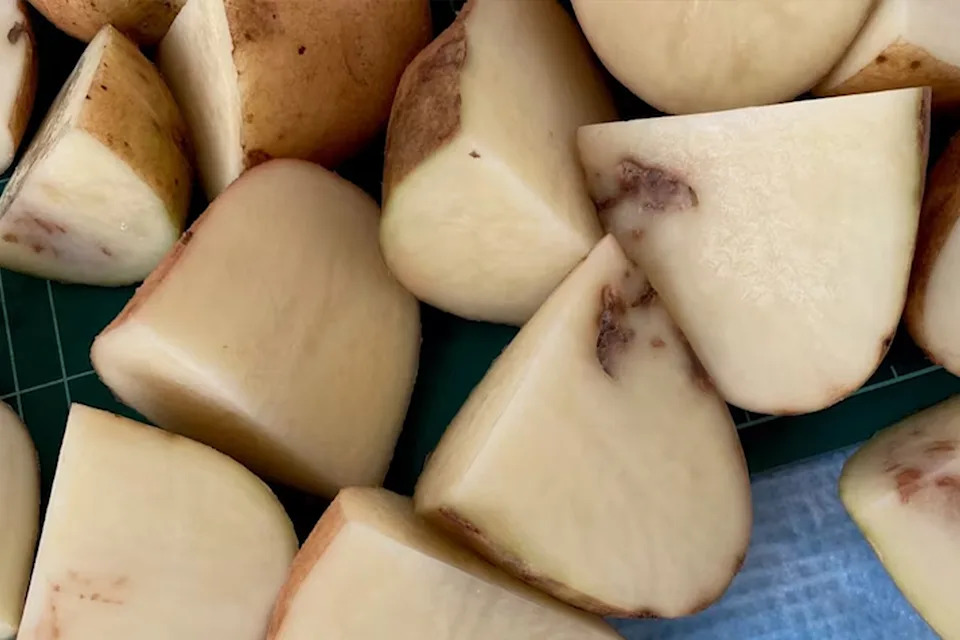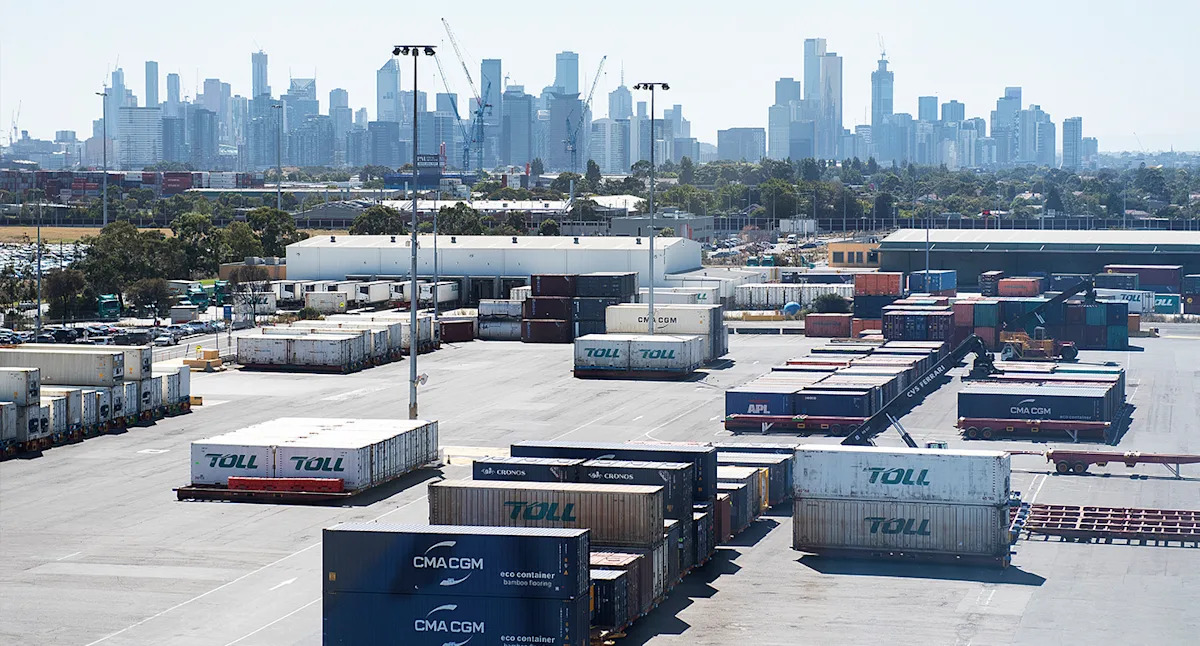Held in cold storage containers at farms around Australia are 500 tonnes of seed that could be infected with an invasive disease. If it were to be planted, experts fear the potato mop-top virus could rapidly spread, deforming crops and making them unsalable to supermarkets.
The seeds were sent from Tasmania to the mainland before mop-top was detected there in July and the borders were shut through a quarantine order. Until that moment, the entire nation had been considered free of the disease, and authorities are determined to ensure it doesn’t leave the island state.
Mop-top has been found in a seedline of roughly 100 tonnes at one location in Victoria and it has not been planted. But potato pathologist Dr Nigel Crump is worried that a further 400 tonnes, which have been distributed to potato-growing regions across the country, could also be infected.
“The virus could be below the limits of detection, so this is a real concern,” he told Yahoo News.
Crump is calling on federal authorities to destroy the seed and compensate farmers for their losses, which at $800 a tonne would amount to roughly $400,000.
“It’s time to show us the money. We’re in planting season, and growers need to be assured,” he said.

Potato mop-top virus can discolour potato flesh. Source: Department of Natural Resources and Environment Tasmania
Is the potato virus dangerous to humans?
The virus doesn’t impact human health, but it does cause an ugly discolouration of potato flesh and bumps on the skin. It’s widespread around much of the world, including the United States, Canada, Europe, South America and parts of Asia.
As the managing director of Australian Seed Potato Industry Certification Authority (AusSPICA), Crump is concerned that a detection on the mainland could harm not only domestic crops, but also international seed exports. Market access to Indonesia, Vietnam and Thailand is dependent on crops being free of mop-top.
“It’s an unfortunate situation for Tasmania, but it’s an opportunity for the mainland to protect its interests and make sure the disease isn’t established,” Crump said.
Love Australia’s weird and wonderful environment? 🐊🦘😳 Get our new newsletter showcasing the week’s best stories.


